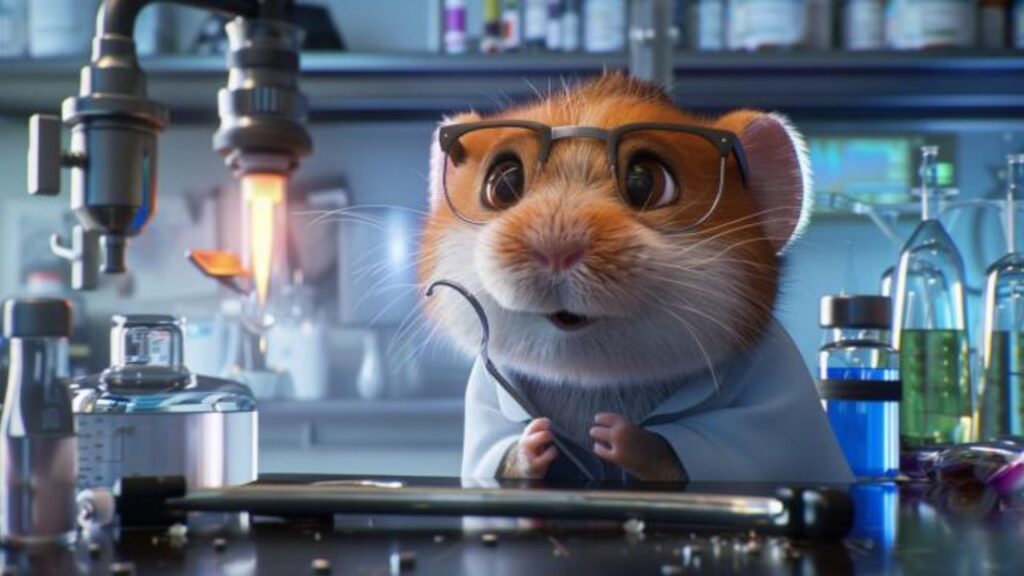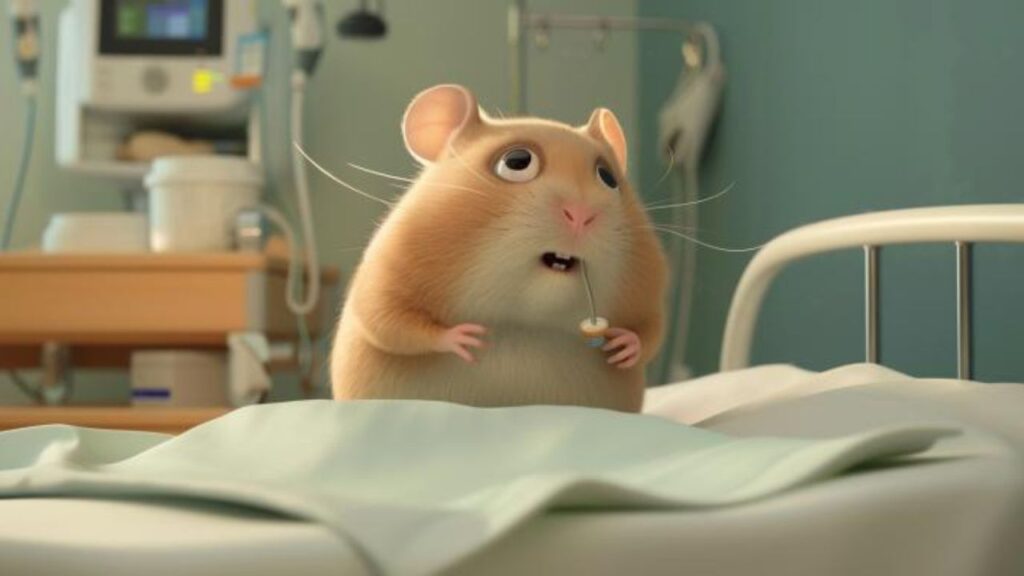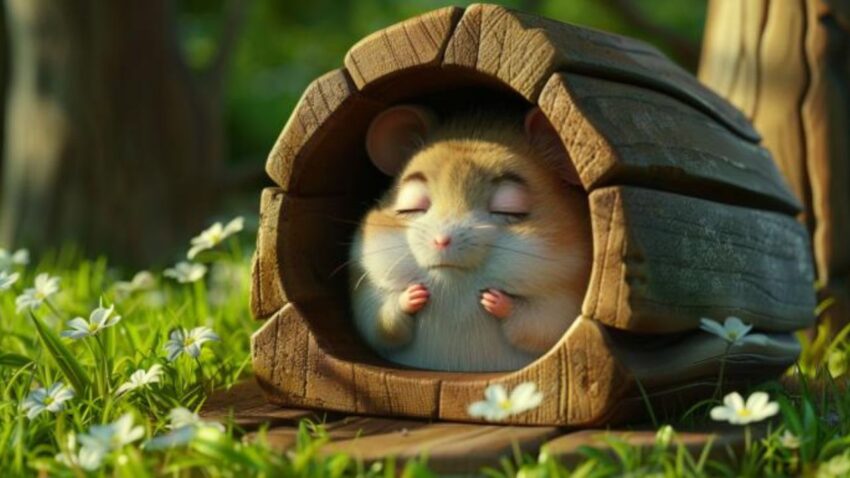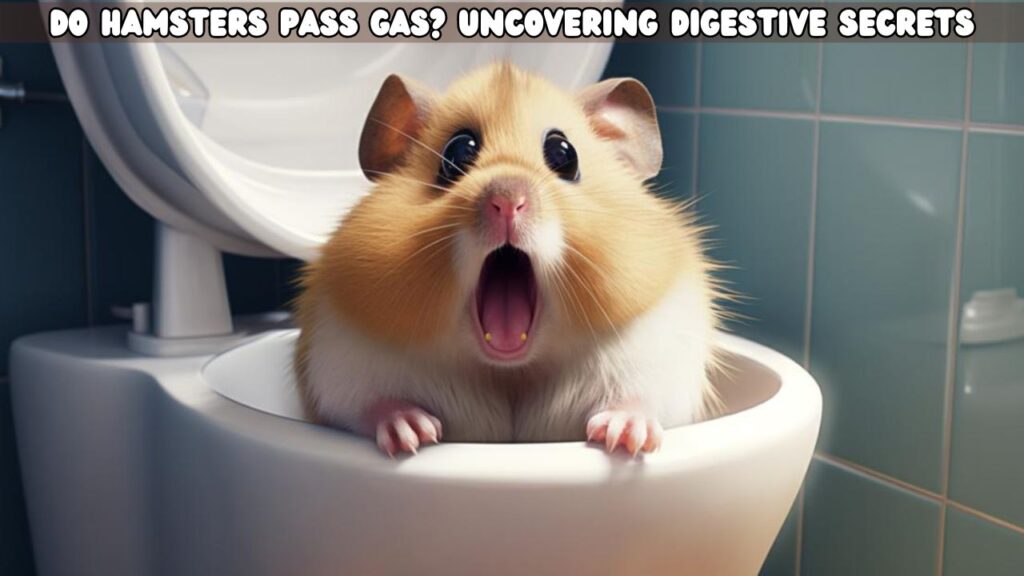TL;DR Summary
If your hamster’s eyes are closed, it could be due to normal sleep habits, as these creatures are often active at night and rest during the day. However, if they’re keeping their eyes shut during their usual active hours, it could signal health issues like eye infections, irritation from dust or bedding, allergies, or injury. Age-related conditions and environmental factors like bright light or drafts can also cause them to close their eyes more frequently. To ensure your hamster’s eyes stay healthy, keep their habitat clean, minimize stress, and check their eyes regularly for any signs of discomfort. If you notice persistent eye closure or other symptoms like discharge or redness, it’s time to consult a vet for proper diagnosis and treatment. A healthy hamster environment and attentive care from you can help keep those tiny eyes bright and alert. Remember, a happy hamster is a wheel-y happy you!
It’s a quiet evening, and as you peek into your fluffy friend’s enclosure, you notice something peculiar – your hamster’s eyes are steadfastly closed. While these petite pets do love their beauty sleep, prolonged periods of eye closure during their typically active hours can ring alarm bells for any doting hamster parent. Understanding why your hamster’s eyes are closed is crucial, not just for your peace of mind but also for the wellbeing of your tiny companion. The reasons can range from the perfectly normal to the need-for-vet kind of serious. So, let’s nibble away at the layers of this issue and reveal what those sealed eyelids might mean.
Normal Sleep Patterns
Hamsters are nocturnal or crepuscular, meaning they’re most active at night or twilight hours. It’s entirely typical for hamsters to have their eyes closed as they drift through their daytime naps. But if this behavior extends into their active nocturnal periods, it may indicate a deeper issue.
Health Concerns
Closed eyes can sometimes be a symptom of health issues such as an eye infection, irritation, or other ailments. These issues might cause discomfort, leading your furry pal to keep their eyes shut to relieve pain or block out light.
Environmental and Age-Related Factors
Sometimes, the environment plays a role. Drafts, bedding dust, or changes in lighting can all lead to your hamster keeping their eyes closed more than usual. On the other hand, as hamsters age, their vision changes, and so might their eye-opening habits.
Understanding Hamster Vision

To unravel the mystery behind your hamster’s closed eyes, it’s important to first understand how these charming creatures see the world around them. Hamster vision is quite different from human sight, both in functionality and purpose.
The Basics of Hamster Eyesight
Vision Characteristics
Hamsters are not known for having the keenest vision. Their eyes are adapted more for detecting motion and light changes rather than for detailed, clear vision. These small rodents have a visual acuity that is considerably lower than that of humans, which means they don’t rely heavily on sight for navigating their environment.
Role of Eyes in Hamster Behavior
Instead, hamsters depend on a combination of senses, with the primary ones being smell and touch. Their eyes are situated on the sides of their heads, giving them a wide field of view to spot predators and any sudden movements. However, this positioning also means that hamsters have a blind spot right in front of their noses and poor depth perception. They are particularly sensitive to bright light, which can be uncomfortable for them, hence why they prefer dim or dark environments that mimic their natural nocturnal habitats.
Navigating with Limited Vision
Daily Activities
Despite their limited vision, hamsters are quite adept at getting around. They use their sense of smell to recognize their territory and locate food. Their whiskers (or vibrissae) are incredibly sensitive and help them to “feel” their surroundings, ensuring they don’t bump into obstacles as they explore.
Vision and Communication
Visual communication is not a strong suit for hamsters due to their limited eyesight. They rely much more on vocalizations, scent marking, and body language to communicate with one another. When hamsters interact with their owners, they’re likely responding more to your scent and voice than to your appearance.
Understanding these aspects of hamster vision helps explain why their eyes might be closed more often than not. They simply don’t rely on their eyes as much as we do, and in some cases, they might close them to avoid overstimulation or to protect them from potential irritants. Next, we’ll explore the common reasons why your hamster might be keeping their eyes closed and when it’s a cause for concern.
Common Reasons for Closed Eyes in Hamsters

Hamsters may close their eyes for a variety of reasons, ranging from natural behaviors to indications of health issues. Let’s take a closer look at the possible explanations for why your hamster might be spending more time with their eyes shut.
Sleep Patterns
Natural Resting Behavior
Hamsters are primarily active during the evening and night. During the day, it’s normal for them to sleep and thus have their eyes closed. In fact, seeing a hamster with its eyes closed during daylight hours is often a sign of a comfortable and content pet.
Health Issues
Infection or Irritation
One of the most common health-related reasons for a hamster to keep its eyes closed is due to an eye infection or irritation. Symptoms can include redness, swelling, discharge, or crust forming around the eyes upon waking. Infections can arise from bacteria, and irritations can occur due to particles like sawdust getting into the eye.
Allergies
Hamsters can suffer from allergies just like humans. Allergens in their bedding, such as dust, or airborne substances, can lead to allergic reactions, causing the eyes to swell and prompting the hamster to keep them shut to soothe the itchiness and discomfort.
Injury
A scratch or injury to the eye can cause a hamster considerable pain, leading them to close the affected eye to protect it from light and further injury. Injuries can occur from rough handling, skirmishes with cage mates, or accidents within their habitat.
Environmental Factors
Bedding and Dust
The type of bedding used in a hamster’s enclosure can affect their eyes. If the bedding is too dusty or if there are other environmental pollutants, your hamster might keep its eyes closed to protect them from irritants.
Lighting
As mentioned before, hamsters are sensitive to bright light. Sudden exposure to bright lights can be overwhelming for them, causing them to close their eyes more frequently.
Age-Related Conditions
Degenerative Changes
As hamsters age, they may experience degenerative changes in their eyesight. Cataracts and other age-related eye conditions can make it uncomfortable for them to keep their eyes open, especially in the light.
General Age-Related Weakness
Older hamsters often slow down and sleep more, which might also account for them keeping their eyes closed more often.
It’s essential to observe your hamster’s behavior closely. While some reasons for closed eyes are benign, others warrant prompt veterinary attention. Keep an eye out for signs of distress or illness, and if in doubt, consult with a professional for peace of mind and the health of your furry friend. In the next sections, we’ll delve into how to diagnose these issues accurately and the best practices for treating and caring for a hamster with closed eyes.
Diagnosing the Issue

When it comes to your hamster’s health, being a keen observer can make all the difference. Identifying whether your hamster’s closed eyes are a sign of a nap or a symptom of something more serious requires a watchful eye and an informed approach.
Observation Tips for Hamster Owners
Note the Duration and Frequency
Keep track of how long and how often your hamster’s eyes remain closed, especially during their usual active hours. Documenting these patterns can help determine if there’s a need for concern.
Check for Other Symptoms
Apart from closed eyes, look for additional signs of distress or illness, such as lack of appetite, unusual lethargy, changes in drinking habits, or changes in the appearance of their eyes when they are open.
Monitor Their Environment
Regularly check your hamster’s living conditions. Ensure their bedding is clean, non-irritating, and free of dust. Observe any changes in lighting or temperature that may affect their comfort.
Behavior Changes
Pay attention to any changes in your hamster’s behavior. Are they still grooming themselves? Are they interacting with their environment in the usual way? Behavioral changes can be an early indicator of discomfort or illness.
When to Consult a Veterinarian
Persistent Eye Closure
If your hamster’s eyes remain closed for extended periods, interrupting their normal activity, it’s time to consult a vet.
Accompanying Symptoms
Presence of discharge, redness, swelling, or any sign of eye irritation are clear indicators that professional medical advice is needed.
Changes in Overall Health
If you notice a downturn in your hamster’s general health alongside the eye issue, such as weight loss, lethargy, or changes in eating and drinking habits, seek veterinary care immediately.
No Improvement with Home Care
If you’ve made environmental adjustments and there’s no sign of improvement, or if your hamster’s condition worsens, it’s essential to get them checked out by a vet.
A qualified veterinarian can provide a thorough examination and may perform tests to diagnose the exact cause of your hamster’s eye problem. They can also give you the best advice on treatment options and how to prevent future issues. In some cases, early intervention can prevent more serious complications and ensure your hamster returns to their curious and active self. Next, we’ll explore some treatment and care options to help your hamster’s eyes stay bright and healthy.
Treatment and Care

When your little companion’s eyes are not sparkling as usual, it’s crucial to know how to administer proper care and when to seek professional treatments. A blend of attentive home care and veterinary expertise can help restore the twinkle in your hamster’s eyes.
Home Care Tips
Create a Comfortable Environment
Ensure that your hamster’s habitat is clean, well-ventilated, and free from drafts. The bedding should be soft and dust-free to prevent any irritation to the eyes.
Gentle Cleaning
For mild crustiness around the eyes, you can gently wipe the area with a warm, damp cloth. Be very gentle and avoid touching the eye directly to prevent further irritation.
Monitor Light Exposure
Dim the lights around your hamster’s enclosure, as bright light can be harsh on their sensitive eyes. This can provide comfort, especially if the eye closure is due to light sensitivity.
Avoid Stress
Hamsters can become stressed by changes in their environment or routine. Maintain a calm atmosphere and handle your pet gently, as stress can exacerbate health problems.
Nutrition and Hydration
A well-balanced diet rich in nutrients and constant access to fresh water can aid in your hamster’s overall health and recovery.
Professional Treatments Available
Veterinary Examination
A thorough examination by a veterinarian is the first step in professional treatment. The vet may perform a physical examination and recommend diagnostic tests such as a fluorescein eye stain test to check for abrasions on the eye’s surface.
Medication
Based on the diagnosis, your vet may prescribe antibiotic eye drops or ointments if an infection is present, anti-inflammatory medication for swelling, or saline solutions to help with eye dryness.
Surgery
In rare cases, if there’s a severe injury or an underlying condition affecting the eye that does not resolve with medication, surgery might be an option offered by the vet.
Supportive Care
Your vet can also advise on supportive care measures, such as supplements or changes in diet, to boost your hamster’s immune system and overall health.
Always follow your veterinarian’s instructions closely when administering any treatment. Never use over-the-counter medications or treatments designed for humans without consulting your vet first, as these can be harmful to your pet.
By combining vigilant home care with timely professional intervention, you can help ensure that your hamster’s eye health is taken care of. Remember, proactive care is the best way to keep those little eyes bright and clear!
Whisker Tips: Keeping Your Hamster’s Peepers Perky

Let’s zoom in on some “Whisker Tips” for ensuring the health and happiness of your hamster’s eyes. Regular monitoring and a bit of tender loving care can go a long way.
Regular Eye Checks
A Little Peek Goes a Long Way
Make it a routine to gently examine your hamster’s eyes. You’re looking for clarity, brightness, and the absence of discharge or crustiness. This daily once-over can help you catch issues before they become bigger problems.
Ideal Habitat
Home Sweet Home
Maintain a living space for your hamster that’s not just comfortable but also eye-friendly. This means low-dust bedding (paper-based is often a good choice) and avoiding substrates like cedar or pine shavings, which can be irritating.
Proper Handling
Handle with Care
When you’re giving your hamster some out-of-cage time, be sure to wash your hands first. This reduces the risk of transferring anything that might irritate their eyes.
Diet and Supplements
Nutritional Nibbles
Ensure your hamster’s diet supports overall health, including eye health. Foods rich in vitamins A and C can be beneficial. Think about adding small pieces of carrot or sweet bell pepper to their diet, but always in moderation.
Environmental Control
Avoid the Draft
Hamsters are susceptible to drafts, which can dry out their eyes. Keep their cage in a draft-free area where the temperature is stable and comfortable.
Light Matters
Use subdued lighting near your hamster’s cage to prevent discomfort due to their light-sensitive eyes.
When to Step Back
Let Sleeping Hamsters Lie
If your hamster’s eyes are closed while they’re snoozing during the day, resist the urge to wake them up for a health check. Let them rest and check on their eyes once they’re awake and active on their own.
By following these Whisker Tips, you can help keep your hamster’s eyes as healthy as can be. And remember, if you ever have concerns about your hamster’s eye health, don’t hesitate to reach out to your veterinarian. Early intervention is key to resolving many health issues.
Conclusion

We’ve scurried through a maze of information about hamster eye health, pausing to nibble on various important tidbits along the way. From understanding how these little critters use their eyes, to recognizing the difference between a sleepy hammy and one that may be feeling under the weather, we’ve covered the essentials of what it means when your hamster’s eyes are closed.
A Recap of the Bright Spots
- Hamster Vision: We learned that hamsters don’t rely heavily on their vision and are more dependent on other senses, which explains their frequent eye closures.
- Normal Behaviors: Sleep patterns are vital, and it’s perfectly normal for hamsters to have their eyes closed while they rest during the day.
- Health Red Flags: On the flip side, we’ve identified health concerns such as infections, allergies, and injuries that might cause those tiny eyes to remain shut.
- Environmental Factors: We’ve underscored the importance of creating a comfortable habitat, considering everything from bedding to lighting.
- Age Matters: Age-related changes in hamsters can affect their eyesight and may lead to more frequent eye closures.
- Observation is Key: Monitoring your hamster’s behavior and eye health is crucial, and we’ve equipped you with tips on when to handle things at home and when to call in the vet cavalry.
- Home and Professional Care: We’ve outlined steps for home care and highlighted the importance of seeking professional treatment when necessary.
- Whisker Tips: Our exclusive section provided you with practical advice to ensure those little eyes stay as sparkly as a star-filled night.
Final Thoughts and Reassurance
If you’re a hamster owner concerned about your furry friend’s closed eyes, take heart. Most of the time, the cause is as innocent as a nap. However, armed with the knowledge from this article, you can be vigilant about your hamster’s eye health and take action when needed. Remember, you’re not alone in this. Veterinarians are there to support you, and a well-informed, observant pet parent is a hamster’s best ally.
Signature Closing
As we bring our exploration of hamster eye health to a close, keep in mind that your care and attention are the brightest beacons in your pet’s life. With your newfound insights, you’re fully equipped to ensure your hamster not only keeps their eyes open to the wonders of their little world but also remains as healthy and happy as can be.
And as always, remember, a happy hamster is a wheel-y happy you!
This structure aims to provide a comprehensive wrap-up of our topic. If this meets with your approval, we can whisk(er) our way back to the beginning and start drafting the introduction.




